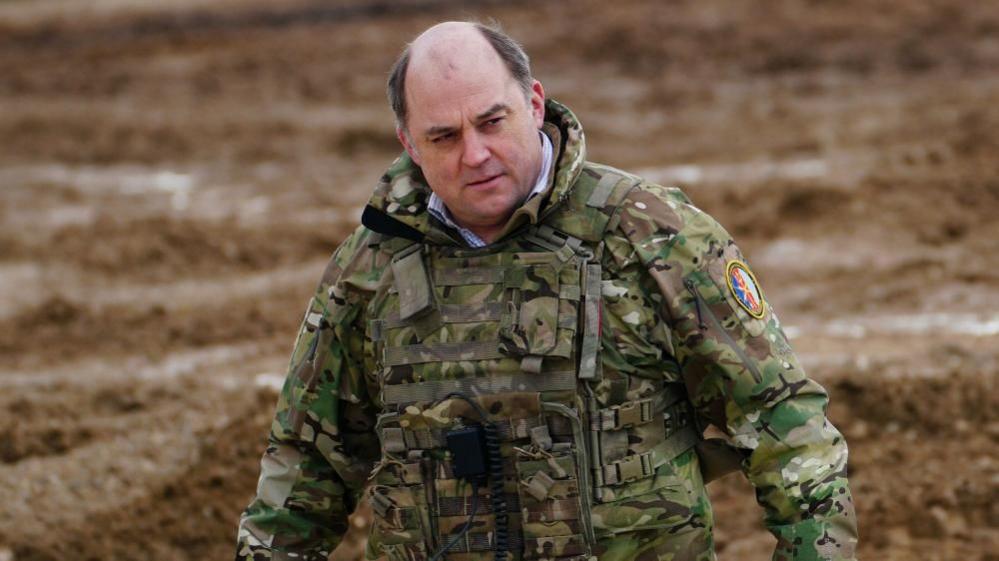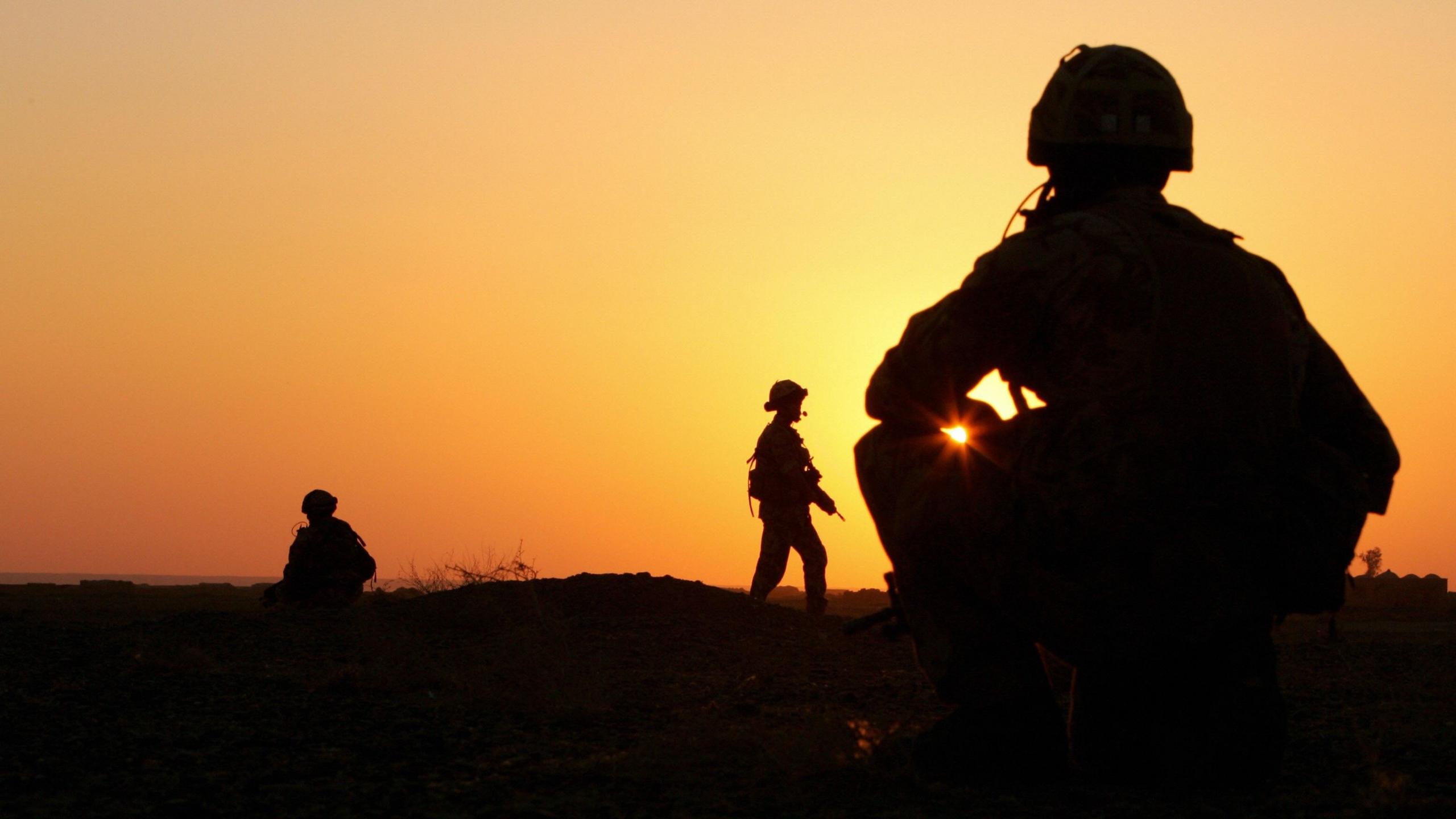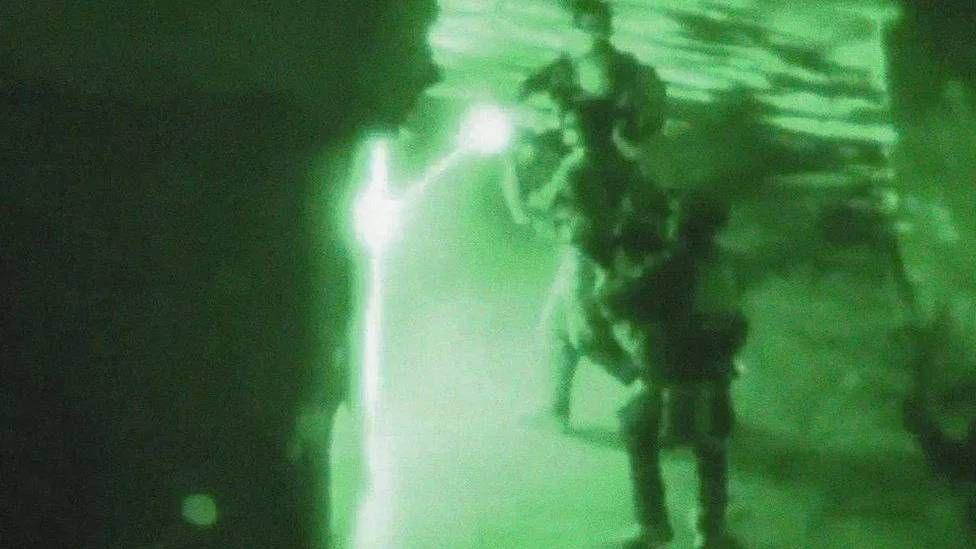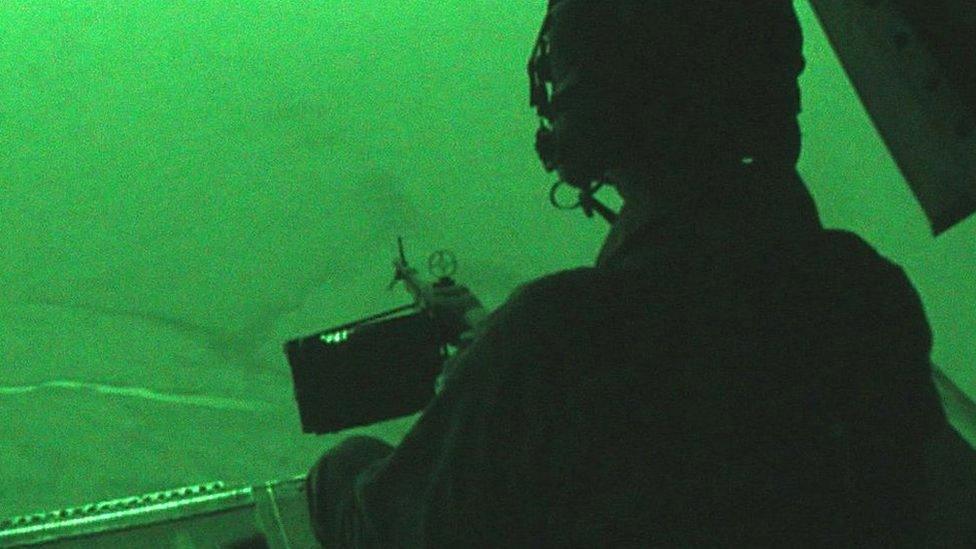Questions for Wallace over war crimes bill change that would have protected SAS

A key change was made to the Overseas Operations Bill while Sir Ben Wallace was in government
- Published
Former Defence Secretary Sir Ben Wallace is facing questions about a change made to a draft bill that would have protected the SAS from prosecution.
At the time the changed bill was presented to Parliament, Sir Ben was already aware of war crimes allegations against the elite regiment, senior government sources told BBC Panorama.
The Overseas Operations Bill had originally proposed British troops be protected from war crimes prosecutions relating to alleged offences more than 10 years ago.
But under Sir Ben, the 10-year clause was halved to five years.
The change had the effect of pushing war crimes allegations against the SAS outside the cut-off period for bringing a prosecution under normal circumstances.
Government sources close to the bill told the BBC that Sir Ben took personal charge of its passage and no changes were made without his approval.
'Troubling'
The allegations against the SAS are now being investigated by a public inquiry chaired by Lord Justice Haddon-Cave, which was launched following a BBC Panorama investigation. Panorama revealed that an SAS squadron killed 54 people in suspicious circumstances on one six-month tour.
Sir Ben is giving evidence at the inquiry on Monday.
The former Conservative Attorney General, Dominic Grieve, who expressed serious misgivings about the bill when it was introduced, told the BBC the change to the timeframe “certainly raises questions” in light of the allegations against the SAS.
“If ministers knew there were potential prosecutions that were likely to arise from operations in Afghanistan, if you knew about the allegations regarding special forces during that time period, it strikes me as troubling that you would seek to make that change,” Grieve said.
“The public inquiry may wish to look at this as part of their work examining the government’s handling of the allegations in question,” he added.
SAS unit repeatedly killed Afghan detainees, BBC finds
- Published12 July 2022
How a British special forces raid went fatally wrong
- Published14 December 2022
Plan to shut war crimes probe concerned minister
- Published9 October 2023
Lieutenant Colonel Nicholas Mercer, who was the army's former chief legal adviser in Iraq, told the BBC the change raised serious questions about the bill’s intent.
“Ministers appear to have known about the allegations against the SAS all along,” he said. “So was this a deliberate attempt to cover up those allegations under the guise of dealing with so-called vexatious claims? It’s a very serious question.”
In response to questions about this article, Sir Ben told the BBC it would be "wholly inappropriate and indeed disrespectful to Lord Justice Haddon-Cave to provide any comment whatsoever in respect of your questions only a day or so before I give evidence to the inquiry".
The BBC asked the former defence secretary if he disputed knowing about allegations against the SAS before the bill was changed but he declined to answer our questions at this time. In a separate post on social media, he characterised our questions as “leading and inaccurate”.
The Overseas Operations Bill was designed to prevent what the government has characterised as “vexatious” legal claims against troops serving abroad.
But the bill drew severe criticism from both former senior members of the armed forces and human rights advocates, who said it gave soldiers effective immunity from prosecution.

The original bill proposed a "triple lock" of protections after 10 years: a statutory presumption against prosecution; a requirement for prosecutors to give weight to the “exceptional demands and stresses” on service personnel operating overseas; and a requirement to obtain the consent of the attorney general for any prosecution to proceed.
The only offences exempted from this triple lock were rape and sexual violence. Other alleged war crimes, including extrajudicial killings and torture, were to be afforded the presumption of these legal protections.
During the passage of the draft bill, the 10-year clause originally proposed by the Ministry of Defence was halved to five years, bringing the entire time period of the allegations against the SAS in Afghanistan under the protections offered by the bill.
At the time the bill was introduced, Sir Ben was aware the Royal Military Police had already investigated several SAS squadrons for murder on night raids in Afghanistan – scrutinising more than 60 deaths in total.
Sir Ben had also been briefed by then-defence minister Johnny Mercer about serious concerns around the adequacy of the RMP investigations, which had resulted in no prosecutions. The Ministry of Defence was also being sued at the High Court at the time for an alleged failure to adequately investigate the allegations against the SAS.
And Mercer had informed Sir Ben that video footage of the SAS operations under scrutiny, which should have been captured by drones and stored, had apparently disappeared.
Addressing parliament during scrutiny of the bill in 2020, Stephen Morgan, then shadow defence minister, noted the change to a five-year timeframe “meant that operations in Afghanistan, which ended in 2014, fell outside the time limit unless the circumstances for prosecuting any new alleged offences were deemed exceptional”.
“That raises questions about the government’s reasons, and about the evidence or advice that they received, for changing the deadline to five years,” he said. “Five years seems to be an arbitrary figure, with no clear evidence for why that timeframe has been selected.”
Mercer argued in parliament that responses to a public consultation had supported a reduction of the initial 10-year timeframe. Though according to the published consultation, 90% of respondents described themselves either as serving military personnel, veterans, or a relative of either.
Tessa Gregory, a partner at the law firm Leigh Day, which represents the bereaved Afghan families at the public inquiry, told the BBC that Sir Ben was “well aware of serious concerns surrounding UK Special Forces operations" at the time the Overseas Operations Bill was introduced.
“Our client’s judicial review was under way and [Sir Ben's] own minister was raising the alarm that something had gone gravely wrong,” she said.
“In such circumstances, it would be a matter of real concern for the bereaved families we represent if it was [Sir Ben] who personally decided that the presumption against criminal prosecution in the bill should apply to all offences more than five years ago, rather than the 10 years recommended by his department.”
The bill was voted on several times by the Conservative-controlled House of Commons but repeatedly sent back by the House of Lords over concerns from peers the UK could end up subject to intervention by the International Criminal Court, if it was seen to be unwilling to prosecute its own forces for war crimes.
The bill was subsequently amended to exclude war crimes, torture and genocide, alongside rape and sexual violence, from the presumption against prosecution. Sir Ben was still secretary of state for defence when it passed into law in April 2021.

Do you have information about this story that you want to share?
Get in touch using SecureDrop, a highly anonymous and secure way of whistleblowing to the BBC which uses the TOR network.
Or by using the Signal messaging app, an end-to-end encrypted message service designed to protect your data.
SecureDrop: http://kt2bqe753wj6dgarak2ryj4d6a5tccrivbvod5ab3uxhug5fi624vsqd.onion/
Signal: 0044 7714 956 936
Please note that the SecureDrop link will only work in a Tor browser. For information on keeping secure and anonymous, here's some advice on how to use SecureDrop.

- Published2 July 2024

- Published19 February 2024

- Published9 October 2023
